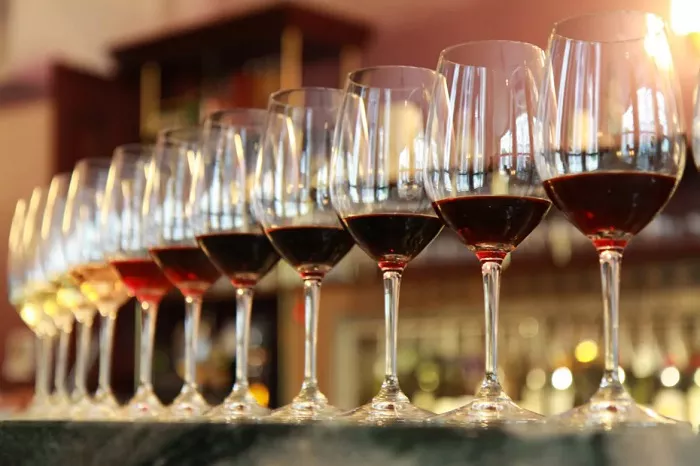Picpoul de Pinet, a popular white wine from southern France, is undergoing a transformation as leading producers experiment with premium styles aimed at elevating the wine’s gastronomic appeal.
Over the past two decades, Picpoul de Pinet has emerged as a widely recognised name among white wine enthusiasts, appreciated globally for its crisp, approachable style and affordable price point. Often identified by its signature Neptune bottle, the appellation has enjoyed particular success in the UK, which accounts for approximately one-third of its total exports.
Despite its consistent popularity, producers within the region are now taking steps to position Picpoul as more than just an easy-drinking aperitif. Spearheading this initiative is Ormarine, the largest cooperative in the appellation, responsible for over 40% of total production. Based in the village of Pinet itself, Ormarine benefits from its unique location near the Étang de Thau and the Mediterranean Sea, factors that contribute to the wine’s distinctive saline minerality and high acidity.
At Cave l’Ormarine, Iain Munson MW, head winemaker at Maison Jeanjean, and Cyril Payon, Ormarine’s director, have been leading efforts to evolve the style of Picpoul. Their approach includes innovative techniques such as fermentation in acacia barrels, extended lees ageing, and sulphur-free winemaking—each intended to enhance the wine’s complexity and broaden its culinary applications.
This experimentation has yielded several new bottlings that showcase a more gastronomic expression of Picpoul. Among them is the Hommage à Etienne Farras, a lees-aged wine produced in limited vintages. Both the 2018 and 2020 versions display richer textures and golden hues, with the 2020 vintage offering acacia honey notes and a slightly bitter, food-friendly finish, while the 2018 adds brioche and ginger spice to the profile.
Another standout is Esprit Libre, a natural-style wine from the 2019 vintage crafted without sulphur dioxide. Characterised by flavours of dried apricot, marmalade, and nuttiness, the wine appeals to consumers seeking sustainable and organic alternatives. Notably, Ormarine is the only Picpoul producer certified by Terra Vitis for sustainable viticulture.
The winemaking innovation is matched by Ormarine’s strategic push into premium pairings. During a visit to the region, wines were served alongside local seafood harvested from the Étang de Thau, a major hub for oyster and mussel farming. The Villemarin Picpoul, a classic expression available in UK retailers for around £11, complemented fresh oysters with its zesty citrus profile and saline finish.
A more textured offering, the Cuvée Estela 2023, benefited from lees ageing, bringing added weight and aromatics of yellow stone fruits. This style demonstrated Picpoul’s versatility, pairing effectively with saucy mussels and artisanal cheeses.
The gastronomic potential of Picpoul extended to desserts, with the 2020 Acaciae—aged in acacia wood—serving as an ideal match for a pear frangipane tart. The wine retained the grape’s signature freshness while showcasing honeyed notes and reduced acidity, enhancing its compatibility with pastry-based dishes.
These developments signal a notable shift for Picpoul de Pinet, as producers like Ormarine work to redefine the perception of the wine. Rather than being confined to supermarket shelves and casual pub menus, Picpoul is increasingly carving a space in premium dining settings. With value for money, regional identity, and gastronomic range on its side, the appellation is well-positioned to strengthen its role in the evolving world of white wine.
You Might Be Interested In:


